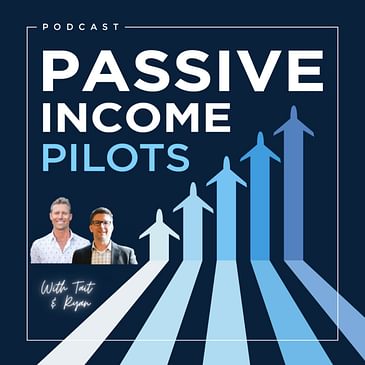In this special episode, we have the honor of flying with Keith Rosenkranz, the legendary Delta Captain who chartered his own retirement flight. Keith's incredible story has captivated the aviation community, and today, he shares the details of his epic farewell flight, his career journey, and his strategies for building a financially secure retirement.
As a pilot, you're familiar with the importance of planning and precision, both in the cockpit and in your financial life. Keith's story is a testament to what’s possible with careful planning, disciplined investing, and a passion for aviation.
Whether you're just starting your career or approaching retirement, this episode is packed with insights and inspiration to help you achieve your dreams. Tune in as we explore Keith's journey from a young aviation enthusiast to a Delta legend, his strategic investments, and the unforgettable retirement flight that has become a new standard for the industry.
Timestamped Show Notes
(00:07) Ryan’s Excitement: Heartwarming aviation retirement story
(00:36) The Airline Pilot’s Dream Retirement
(01:32) Keith’s Career Highlights: Military and Airline career
(04:29) Journey to Becoming a Pilot: Military and ROTC
(08:44) Achievements and Challenges: From military to Delta
(11:00) Financial Wisdom: Navigating furloughs and investments
(13:59) September 10th: Preparing for unforeseen events, advice from experienced pilots
(18:00) Building Wealth: Financial strategies and diversification
(22:37) Operating System: Financial discipline and planning
(26:38) Financial Strategies: Minimizing debt and managing expenses
(27:25) Chartering the Team USA A330neo: Planning the retirement flight
(33:33) Water Cannon Salute: Emotional send-off at LAX
(37:00) The Retirement Flight: Details and experiences
(41:00) Memorable Moments: Final landing and celebrations
(45:02) What’s Next: Keith’s plans for retirement
(50:32) Advice for Young Pilots: Building a strong financial foundation
(52:00) Closing Remarks: Gratitude and future plans
---You've found the number one resource for financial education for aviators! Please consider leaving a rating and sharing this podcast with your colleagues in the aviation community.
Remember to subscribe for more insights at PassiveIncomePilots.com!
Join our growing community on Facebook
Check us out on Instagram @PassiveIncomePilots
Follow us on X @IncomePilots
Get our updates on LinkedIn
Have questions or want to discuss this episode? Contact us at ask@passiveincomepilots.com or record your question to be featured on the show HERE!
Take 10% Off Your Next Uniform - Use code "PASSIVE" on checkout!
Legal Disclaimer
The content of this podcast is provided solely for educational and informational purposes. The views and opinions expressed are those of the hosts, Tait Duryea and Ryan Gibson, and do not reflect those of any organization they are associated with, including Turbine Capital or Spartan Investment Group. The opinions of our guests are their own and should not be construed as financial advice. This podcast does not offer tax, legal, or investment advice. Listeners are advised to consult with their own legal or financial counsel and to conduct their own due diligence before making any financial decisions.

